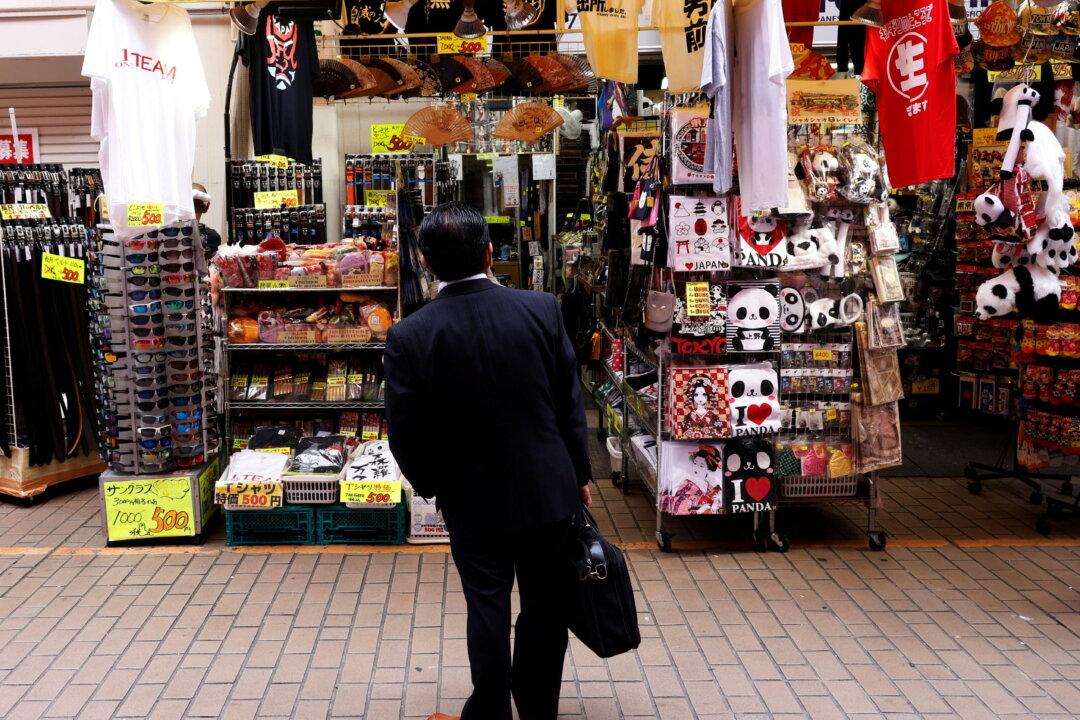Japan’s core consumer inflation rose 3.6 percent in October, the highest level in 40 years, driven by a weaker yen and rising import costs as the central bank kept its monetary easing policy in place.
The nationwide core consumer price index (CPI), which excludes volatile fresh food items, exceeded the Bank of Japan’s (BOJ’s) 2 percent target for a seventh consecutive month, Kyodo News reported.





